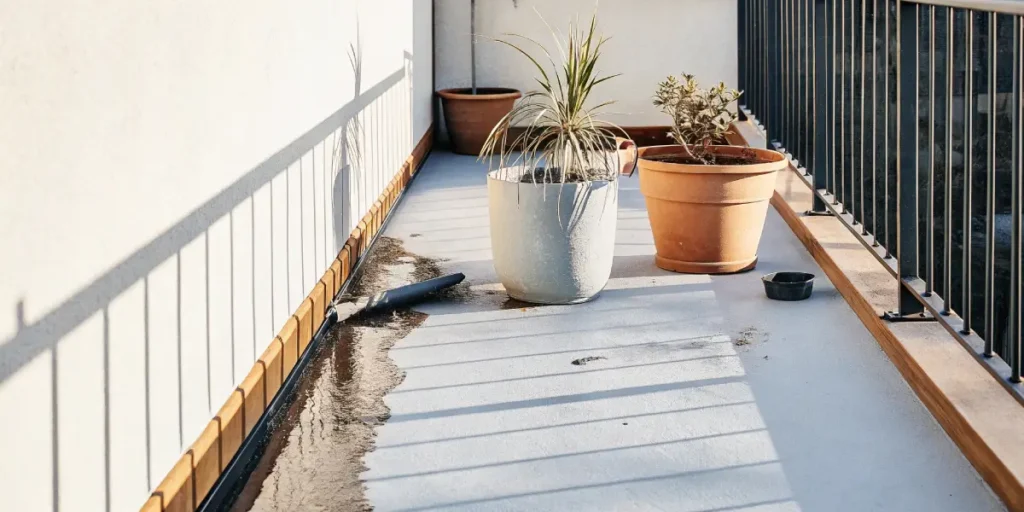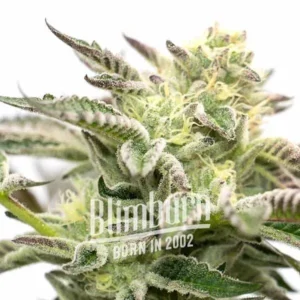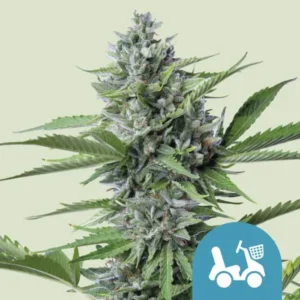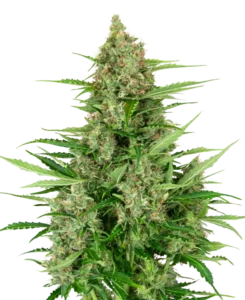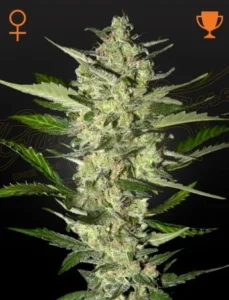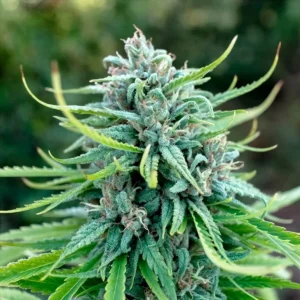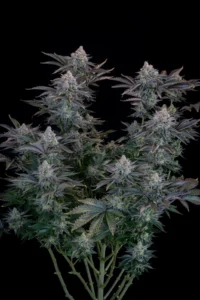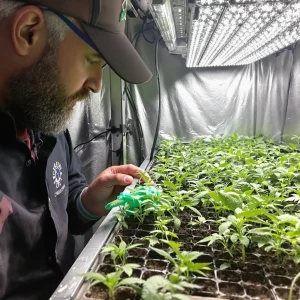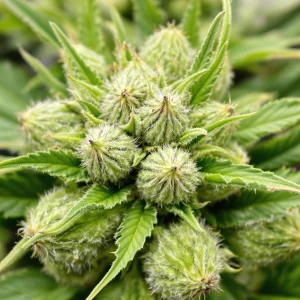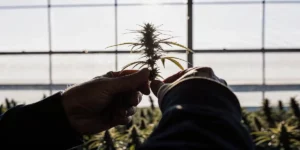Many growers ask: is bong water good for plants, or does it do more harm than good? While watering plants with bong water might seem like a way to recycle waste, bong water contains residues that can negatively affect soil health and plant growth. Understanding whether bong water plants can tolerate these substances is key before using it as an alternative to clean water or proper fertilizers.
Bong water is essentially the water left over after smoking cannabis through a bong. It contains residue from the smoke, such as tar, ash, and other particles. These components are not typically found in tap water, raising questions about their effects on plant growth.
Recommended Strains
Gorilla Sherbet
|
|
THC | 26% - 30% (High) |
|
|
Lineage | GG4 x Sunset Sherbert |
|
|
Type | Feminized |
|
|
Height | 4.92 ft | 1.5 m |
|
|
Yield | High |
|
|
Yield Indoor | 1.97 oz/ft² | 600 g/m² |
|
|
Yield Outdoor | 21.16 - 28.22 oz/plant | 600 - 800 g/plant |
|
|
Flowering Time | 8 - 10 weeks |
|
|
Phenotype | 70% Indica / 30% Sativa |
|
|
Medical | Arthritis, Insomnia, Pain |
|
|
Effects | Energetic, Giggly, Relaxed |
|
|
Flavors | Chocolate, Citrus, Earthy |
Fast Eddy CBD Auto
|
|
CBD | 13% – 14% (Medium) |
|
|
Lineage | Cheese x Juanita la Lagrimosa x Ruderalis |
|
|
Type | CBD Autoflowering |
|
|
Height | 3.94 ft | 1.2 m |
|
|
Yield | Medium |
|
|
Yield Indoor | 1.31 - 1.47 oz/ft² | 400 - 450 g/m² |
|
|
Yield Outdoor | 2.82 - 4.59 oz/plant | 80 - 130 g/plant |
|
|
Life Cycle | 10 - 12 weeks |
|
|
Phenotype | 40% Indica / 50% Sativa / 10% Ruderalis |
|
|
Effects | Calming, Focused |
|
|
Flavors | Citrus, Earthy |
For those new to growing cannabis or houseplants, using bong water fertilizer for plants might seem like a clever hack, but the risks often outweigh any perceived benefits. However, understanding its impact is essential. It’s important to weigh the potential benefits of bong water for gardening against its possible downsides.
Effects of Bong Water on Plant Growth
Introducing foreign substances to your plants can be risky. Bong water contains residues that may disrupt the delicate balance of nutrients in the soil. This imbalance can lead to poor plant growth or even plant death. The components of bong water, such as ash and tar, are not known for promoting healthy plants.
When comparing watering plants with bong water versus tap water, clean water is almost always the safer and healthier option. Tap water is generally clean and free from harmful residues. While it may contain minerals like chlorine or fluoride, these are usually at levels considered safe for most plants. Bong water, on the other hand, is unpredictable and may introduce toxins into your plant’s environment.
Furthermore, the effects of bong water on plant growth can vary significantly depending on the plant species and the specific composition of the bong water. Some plants might show immediate negative reactions, while others may not exhibit signs of distress until much later. This unpredictability is a key reason why many gardeners opt for safer alternatives.
In addition, the microbial life in the soil can be adversely affected by the introduction of bong water. Beneficial bacteria and fungi that aid in nutrient uptake may be compromised, leading to an overall decline in soil health. This can further exacerbate the negative effects on plant growth, making it clear that bong water is not a reliable choice for plant care.
Using Bong Water as Plant Fertilizer
Some growers have tried using bong water fertilizer for plants, believing cannabis residue may help growth, but this assumption is not supported by plant science. However, the reality is more complex. The substances in bong water can lead to a buildup of harmful chemicals in the soil, affecting plant health.
It’s important to remember that plants require specific nutrients to thrive, like nitrogen, phosphorus, and potassium. Bong water does not provide these in the right amounts, if at all. Instead, it introduces impurities that could hinder plant development.
While the idea of using bong water as plant fertilizer might sound innovative, it’s crucial to consider the potential long-term damage to your plants. Over time, the accumulation of toxins in the soil can lead to irreversible damage to the root systems, making it difficult for plants to recover.
Moreover, the presence of tar and ash in bong water could potentially alter the soil’s pH levels, creating an inhospitable environment for plant roots. This could result in nutrient lockout, where essential nutrients are present in the soil but are unavailable for plant uptake due to pH imbalances.
Bong Water Toxicity to Houseplants
Houseplants can be particularly sensitive to environmental changes. The impurities in bong water may be too much for them to handle. Even hardy houseplants like succulents or ferns could suffer from the introduction of bong water toxins.
Using clean water is crucial for maintaining healthy houseplants. Bong water toxicity to houseplants is a real concern, as it can lead to leaf discoloration, wilting, and in severe cases, plant death. It’s always best to err on the side of caution and stick with water you know is safe.
In addition to physical symptoms, bong water toxicity to houseplants can manifest in the form of slowed growth. This can be particularly frustrating for plant enthusiasts who might not immediately associate these signs with the use of bong water. The subtle yet detrimental impact on plant vitality underscores the risks involved.
Given the potential for damage, it’s better to reserve bong water for non-plant-related disposal. Proper care and attention to your houseplants, including the use of appropriate watering techniques, will ensure they remain healthy and vibrant over time. Avoiding bong water entirely reduces the risk of inadvertently harming your cherished plants.
Bong Water vs Regular Water for Plants
| Factor | Bong Water | Tap / Clean Water |
|---|---|---|
| Contains toxins | Yes (tar, ash, residue) | No |
| Nutrient balance | Unpredictable | Stable |
| Safe for roots | High risk | Safe |
| Effect on soil microbes | Harmful | Neutral / beneficial |
| Recommended for plants | No | Yes |
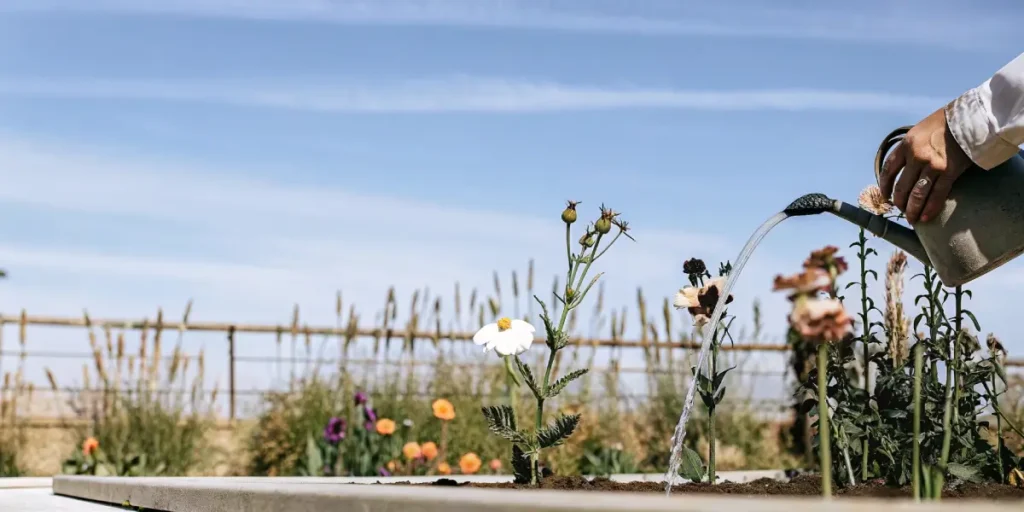
Potential Benefits of Bong Water for Gardening
While some argue why bong water is good for plants, there is no scientific evidence proving it provides meaningful nutrients comparable to compost tea or organic fertilizers. However, this is speculative and not scientifically proven. The risks associated with using bong water far exceed any unproven benefits.
If you’re determined to experiment, do so with caution. Test bong water on a small, non-essential plant first. Observe any changes in growth or health before considering it for your more valuable plants. Remember, strains like White Widow and Northern Lights from Global Green Genetics deserve the best care possible.
Some proponents of using bong water in gardening suggest it could potentially provide micro amounts of organic matter. However, the inconsistency in bong water composition makes it difficult to predict its effects reliably. This uncertainty often leads experienced gardeners to seek out more conventional and tested methods.
Ultimately, while the potential benefits of bong water for gardening may seem appealing in theory, the absence of concrete evidence makes it a risky choice. For those committed to sustainable practices, exploring other methods such as composting or natural fertilizers will likely yield more consistent and positive results.
Better Alternatives for Plant Watering
Instead of using bong water, consider alternative methods to improve your plant’s health. Compost tea, for instance, is a natural fertilizer made by steeping compost in water. It enriches the soil with nutrients and beneficial microbes without the risk of contamination.
Rainwater is another excellent option. It’s naturally soft and free from the chemicals found in tap water. Collecting rainwater can be an eco-friendly way to nourish your plants safely. Just ensure your collection system is clean and free from pollutants.
In addition to compost tea and rainwater, other alternatives like diluted fish emulsion can also provide the necessary nutrients for plant growth without the drawbacks associated with bong water. These options are often rich in essential nutrients and promote healthier, more robust plant development.
Mulching is another effective strategy. By covering soil with organic material, you can help retain moisture, suppress weeds, and gradually improve soil health as the mulch breaks down. These practices enhance your gardening efforts without introducing any of the uncertainties associated with using bong water.
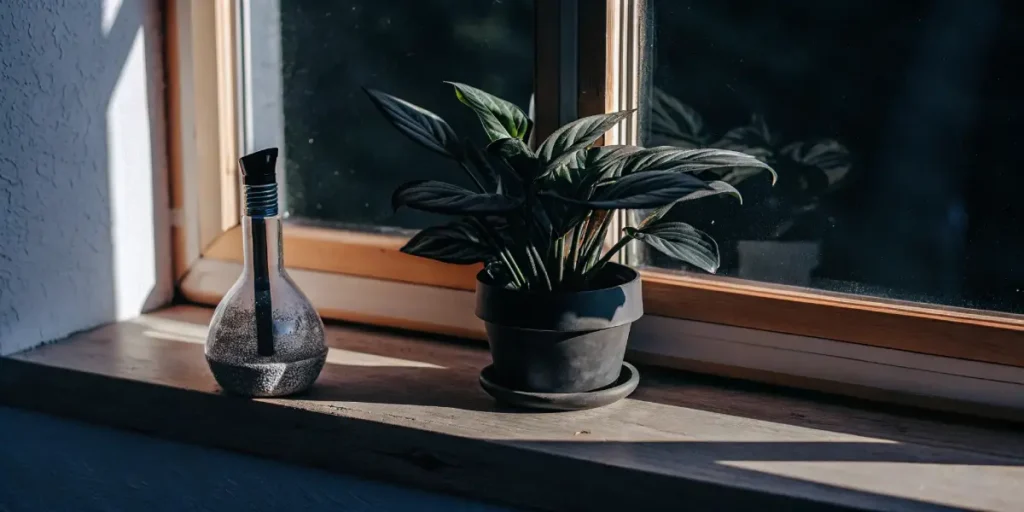
FAQs
Can I use bong water on any type of plant?
Using bong water on plants is generally not recommended due to its unpredictable content. It contains substances like tar and ash, which can be harmful to most plants. Even hardy plants might suffer from the introduction of these impurities, leading to stunted growth or health issues.
It’s best to avoid using bong water on your plants, especially valuable or sensitive ones. Stick to clean, fresh water or proven fertilizers to ensure your plants receive the nutrients they need without the risk of contamination.
Understanding the unique needs of each plant species is crucial. While some plants may tolerate minor stressors, the potential risk of introducing harmful substances from bong water is too great. This approach ensures your plants flourish without exposure to unnecessary hazards.
To maintain the health and vitality of your plants, it’s wise to conduct thorough research on their specific water and nutrient needs. Tailoring your care approach to each plant type can help avoid the pitfalls associated with using unpredictable inputs like bong water.
What are some signs that bong water is harming my plants?
Signs of bong water damage include yellowing leaves, stunted growth, and a general decline in plant health. If you notice these symptoms after using bong water, it’s likely that the impurities are affecting your plant. The build-up of toxins in the soil can lead to root damage and nutrient imbalance.
To remedy the situation, stop using bong water immediately. Flush the soil with clean water to remove residues, and consider repotting if the soil is heavily contaminated. Monitor your plant for improvements, and switch to safer watering methods going forward.
Additional symptoms of bong water harm might include wilting, leaf curling, or an unusual odor emanating from the soil. These indicators suggest the plant is struggling to cope with the adverse effects of the contaminants present in bong water.
In severe cases, root rot could develop due to the compromised soil environment, making it crucial to address bong water influence promptly. By taking swift corrective measures, you can help your plants recover and restore their natural vigor.
Are there any safe uses for bong water in gardening?
While bong water is not ideal for watering plants, it might have limited use in composting. Adding small amounts to a compost pile could potentially contribute some organic matter. However, this is speculative and should be approached with caution.
For safe gardening practices, it’s better to rely on tested methods and products. If you’re looking to recycle resources, focus on composting kitchen scraps or using rainwater for irrigation. These practices are more likely to benefit your plants without risking their health.
When considering the addition of bong water to compost, it’s essential to ensure it doesn’t disrupt the compost’s microbial balance. Excessive amounts could lead to undesirable changes, impacting the overall composting process and quality.
Exploring other environmentally friendly gardening practices, such as vermicomposting or using green manure, can offer more sustainable and effective solutions compared to the uncertain impacts of bong water. These methods contribute positively to soil health and plant growth.
How does bong water compare to other unconventional plant fertilizers?
Bong water is less reliable than other unconventional fertilizers like banana peels or eggshells. These natural alternatives decompose to release nutrients beneficial to plants. Bong water, however, contains substances that can be harmful rather than helpful.
When considering alternatives, prioritize those with proven benefits. Simple solutions like compost or diluted fish emulsion offer safe, effective ways to enhance plant growth without introducing contaminants.
In contrast to bong water, eggshells and banana peels provide a gradual release of calcium and potassium, respectively, which are essential for plant health. These materials break down naturally and integrate well into the soil ecosystem.
By choosing organic fertilizers and natural amendments, you can foster a thriving garden environment with minimal risk. These options support sustainable gardening practices and ensure your plants receive consistent and beneficial nourishment.
What strains from Global Green Genetics are best for beginners?
For novice growers, strains like OG Kush, Blue Dream, and White Widow from Global Green Genetics are excellent choices. These strains are known for their resilience and ease of growth, making them ideal for those just starting out.
OG Kush offers a balanced high and thrives with proper care. Blue Dream is famous for its sweet berry aroma and forgiving nature. White Widow is a classic strain, known for its robustness and quality yields. These strains provide a great foundation for learning and experimenting with cannabis cultivation.
Each of these strains offers unique characteristics that appeal to different preferences. OG Kush, for instance, is renowned for its high THC content, while Blue Dream provides a more mellow experience. White Widow’s balanced effects make it a popular choice among both recreational and medicinal users.
As you gain experience, experimenting with different strains can enhance your understanding of cannabis cultivation. This knowledge will allow you to tailor your growing techniques to achieve the best possible results, ensuring a rewarding and successful gardening journey.

